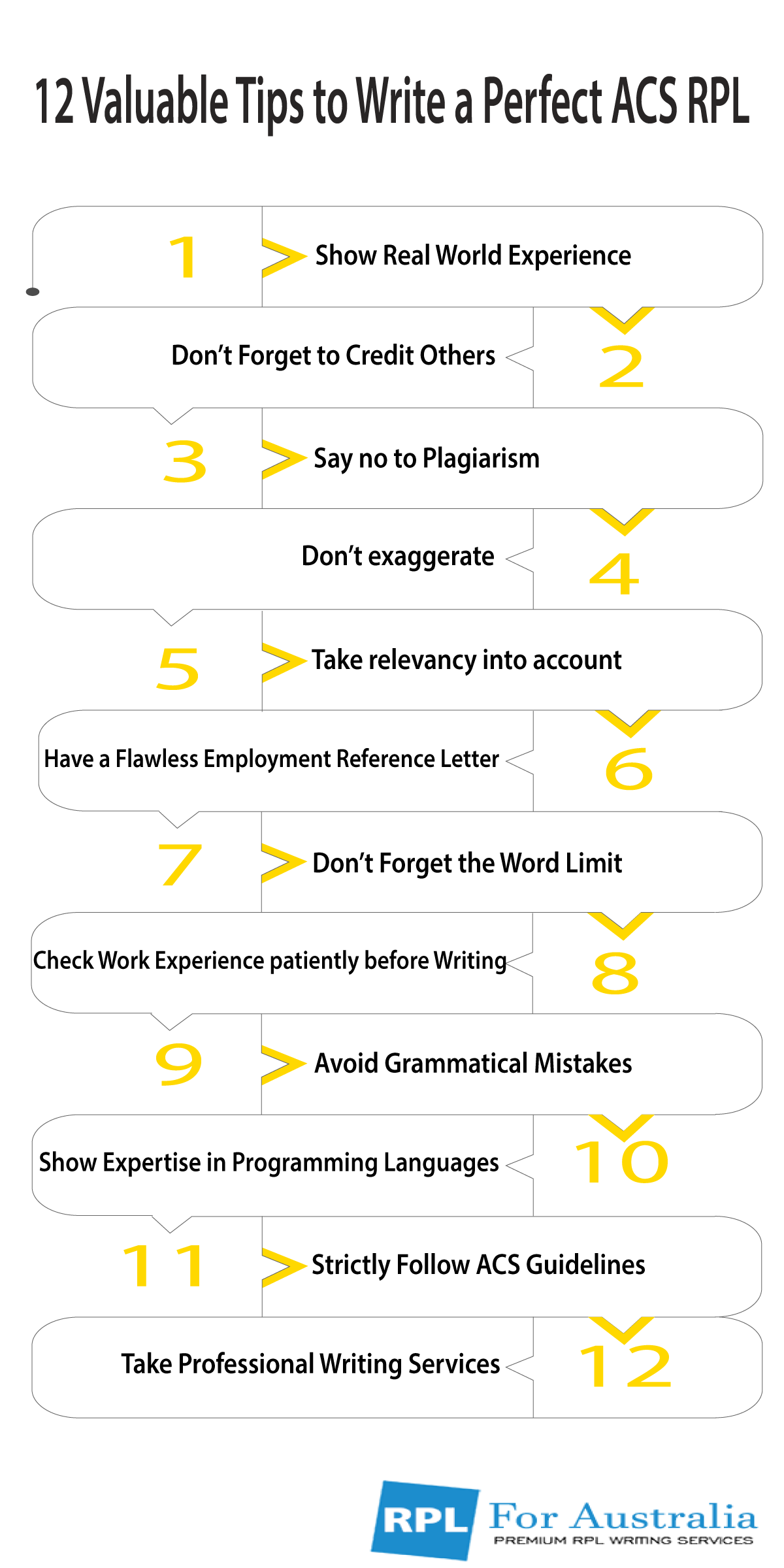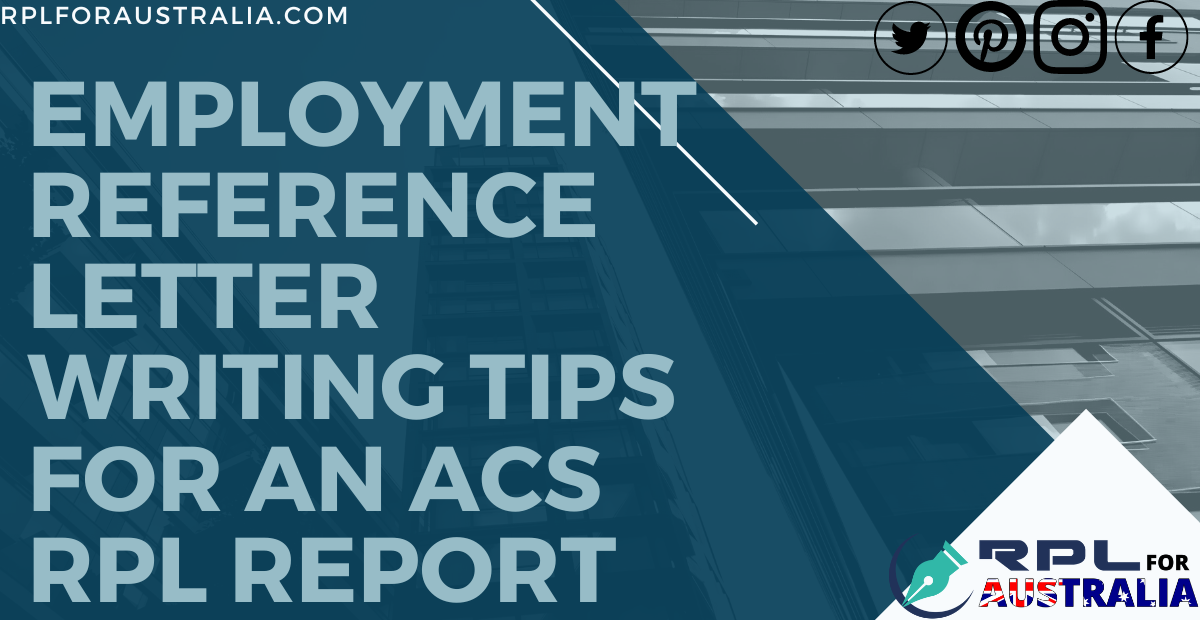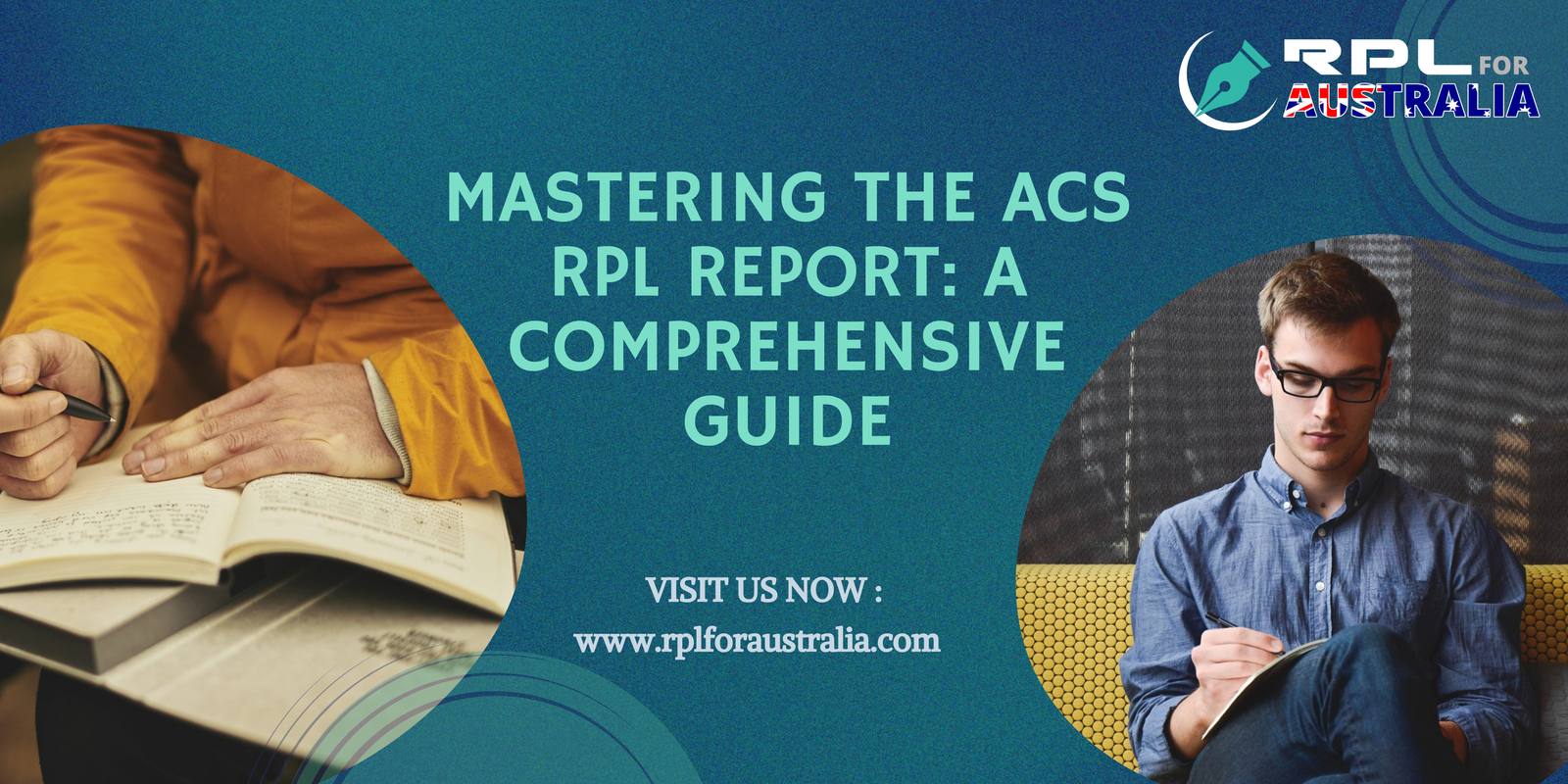Suppose you are an Australian immigration aspirant ICT professional without a degree in the field and even a tertiary level qualification. In that case, the ACS RPL Australia report is the only and best way for you to get your dreams to come true.
Before we move further, we want you to have a clear concept of RPL for ICT professionals for Australia immigration assessment by ACS. As mentioned initially, the RPL pathway is for those who don’t have an ICT degree and even a tertiary qualification but have sufficient experience means they have worked practically in the ICT field.
If you don’t have an ICT degree, you must have at least six years of experience as a professional ICT employee. In the case of being an ICT professional without a tertiary-level degree, you are required to have at least 8 years of experience. The extra 2 years of experience are not compulsory to be of the ANZSCO occupation list occupation you are applying for.
To apply for Australian immigration as an ICT professional with sufficient skills and experience, you must choose from the ANZSCO occupation list. The occupation you select must be relevant to the working knowledge you have. Having had a clear concept of the RPL Australia process for Australian immigration, you must read this blog to understand this pathway further.
Here, we will tell you about the two sections in which an ACS RPL report form is divided. The two sections are Key Areas of Knowledge (section 1) and RPL Project Report (section 2).
Apart from that, we will also acquaint you with the guidelines to fill the two sections of an RPL ACS report, which will help you achieve a positive assessment by the Australia Computer Society (ACS), dealing with applications coming from ICT employee candidates from all over the world. The assessment authority requires an applicant to submit two project reports to prove their practical work experience and knowledge.
Section 1 (Key Areas of Knowledge)
The Key Areas of Knowledge Section is divided into two categories:
- Essential core ICT knowledge: This part includes topics an ICT professional must have:
- ICT problem-solving skills
- ICT professional knowledge
- General ICT knowledge: it includes the topics providing information about the ICT industry:
- Technology Resources
- Technology Building
- ICT Management
Guidelines to fill in the Key Areas of Knowledge perfectly for a positive RPL Australia report result:
- You need to identify Areas of Knowledge topics:
See the format of Key Areas of Knowledge carefully, choose topics wisely. It would help if you filled up the topics from Essential Core ICT Area of Knowledge and General ICT Area of Knowledge. Name the topic you chose and start explaining clearly.
- Explain your knowledge
You must explain the deep knowledge that you acquired. It’s wise to explain the process of how you gained the knowledge in the expandable typing area. Don’t forget to mention your responsibilities and roles and how they are relevant to your chosen topic.
- Address at least two topics
You are not required to pay attention to every subtopic provided in the Key Areas of Knowledge. However, you must ensure that you address at least 2 topics. Put the names of the Subtopics in the Box.
- Concise and clear explanation
Have a detailed and point-to-point discussion about the method you used to gain knowledge and how you earned work experience. Remember that your explanation has to be clear and concise; it must not cross one and a half page word length limit.
Section 2 (RPL Project Report)
You need to submit two project reports in the RPL report. These two reports must show how you worked as an ICT professional. Here, it would help if you showed who you used the Key Area of Knowledge in ICT. This report must be of only four or five pages.
For a perfect RPL Australia report, you must submit one project report within the last 3 years and another within the previous 5 years. The project report needs to include the System Analysis and Design, Network topologies, ICT management activities, project management, and programming paradigms about the project you submitted within the last three and five years.
What RPL Project Report consists of:
- The RPL Project Report section comprises the following:
- Project summary (identification, resources, duration, personal involvement, responsibilities, and roles)
- Business problem or opportunity (any business opportunity in the project)
- Solution (the present to the project solution and design and analysis solving method)
- Result ( your role in the project implementation, the success of the project, and the lessons you learned from the project)
Let’s know one by one what you need to explain in this section for a better understanding:
You must mention the project title, team size, timeline, and other important project details.
After that, you need to say every stage of the project, split into four sections.
The following section is about the project-specific roles and responsibilities.
It is a must to describe the business opportunity or issue the project is based on.
After that, you need to mention how you found the solution to the problem. For example, suppose you are an ICT Trainer 223211. In that case, you must describe the challenges and difficulties you faced in promoting the internal and external training and development and assessing these promotion activities, and how you did these tasks after finding the solution.
After that, you need to explain any design or problem-solving strategies you adopted during the project.
You also need to provide a list of deliverables you were expected at the end of the project.
In the end, you need to go over the results in order, starting with your contribution to solution implementation, assessing project success or failure, and giving extra points you could have done in a better or different way in the project.
Although we told you about the two sections and how to write them, we still find it very important to guide you about how to write a perfect ACS RPL report to give your confidence a boost:
- Choose the project that will make it easier for you to show your knowledge and skills as per the ANZSCO chosen occupation you chose.
- You should clearly state your project details, the project’s name, your assigned role, and the affiliated company in each project for a perfect RPL Australia report. Project responsibilities must be described, allowing you to show how you performed well and fulfilled the expectations. For example, if you are a Systems Analyst 261112, you must explain how you evaluated processes and methods in the existing ICT systems and other responsibilities relevant to this occupation.
- Paying attention to your plus points, you need to show how your ideas brought the desired result in the project design and development.
- Show clearly the methods you used in each project’s System Analysis and Design phase.
- It is essential to show your programming skills, and you must mention the names of the programming languages used in the project.
- To demonstrate your database management skills, you must include all database management techniques utilized throughout the project.
- You also need to include project management and quality assurance techniques utilized during the project development to show how eligible a manager you are.
- Give a complete description of the project’s security mechanisms.
- Show the scope and nature of your ICT management competencies and responsibilities.
- Avoid plagiarism; you can take references from online sources but don’t copy them for your project report. Remember that their situation or project expectations or targets must be different from your own. If you do so, your writing will sound haphazard. So, be honest and write on your own.
- Avoid grammatical mistakes, sentence structure issues, and confusing words. RPL Australia ACS authority has to assess countless reports like yours, and if you trap them in your report by making such mistakes, they will give your report a big ‘No’.
- Before you write the report, you must ensure that you have a proper understanding of the ACS guidelines and criteria. Apart from that, stay updated with the latest rules and guidelines so that you perform well.
- Although last but not least, it’s wise to take help from an RPL ACS writing processional. Such professionals know how to write such critical reports with quality, the guidelines of the assessing authority, follow grammatical rules, avoid plagiarism, show your report authentic and perfect, and so on. Hiring such professionals means that you can assure yourself a success guarantee. Apart from that, you can save your precious time, which can be used in other essential preparation areas for Australian immigration as an ICT candidate.
If still, you feel the need for an RPL Australia report writing specialist, then contact us for a 100% success guarantee.








